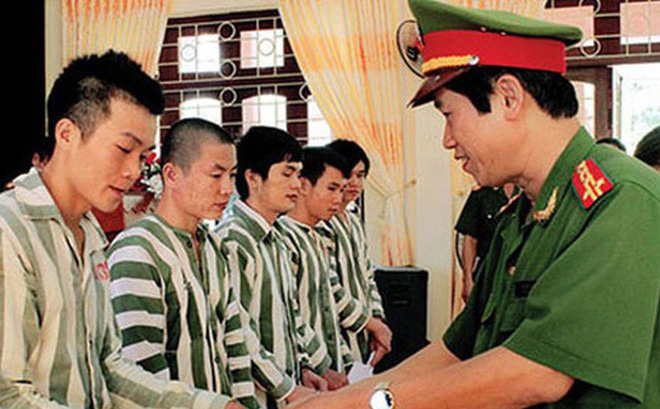In January of 2019, many legal policies shall be effective, SBLAW would like to inform Customer and our associates a summary of these legal documents:
- Law on Cybersecurity shall officially come into effect
The Law on Cybersecurity 2018 provides national security protection, social order and safety maintenance in the cyberspace, and responsibilities of relevant entities, organizations and individuals.
This Law will contribute to ensuring that all activities performed in the cyberspace do not harm national security, social order and safety, and legitimate rights and benefits of organizations and individuals. In addition, theLaw on Cybersecurity 2018 sets out detailed regulations on prohibited acts, including:
– Colluding, abetting, suborning, deceiving, implicating, training and drilling other persons to rebel against the State;
– Distorting historical truths, denying revolutionary outcomes, destroying the great unity of all the peoples, offending religions, practicing racial and sex discrimination, etc.
The 2018 Cybersecurity Law is set to enter into force on January 1, 2019.
- Region-specific minimum pay rates officially in effect from January 1, 2019
On November 16, 2018, the Government promulgated the Decree No. 157/2018/ND-CP prescribing minimum pay rates for employees working under employment contracts.
The minimum pay rates applied from January 1, 2019 will be increased from 160,000 to 200,000 dong/month, specifically including:
- Employees working for enterprises operating within the region I will be paid 4,180,000 dong/month (increased by 200,000 dong in comparison with the rate specified in the Decree No. 141/2017/ND-CP currently in force);
- Employees working for enterprises operating within the region II will be paid 3,710,000 dong/month (increased by 180,000 dong in comparison with the rate specified in the Decree No. 141 currently in force);
- Employees working for enterprises operating within the region III will be paid 3,250,000 dong/month (increased by 160,000 dong in comparison with the rate specified in the Decree No. 141 currently in force);
- Employees working for enterprises operating within the region IV will be paid 2,920,000 dong/month (increased by 160,000 dong in comparison with the one specified in the Decree No. 141 currently in force).
The region-specific minimum pay rate is defined as the lowest amount of pay based on which enterprises and employees seek an agreement and wage or salary is paid.
The Decree No. 157/2018/ND-CP is about to enter into force on January 1, 2019.
- Agricultural and rural projects receive investment incentives
This is the highlight of the Circular No. 04/2018/TT-BKHDT providing guidance on implementation of the Decree No. 57/2018/ND-CP dated April 17, 2018.
Accordingly, the List of projects receiving incentives for enterprises’ agricultural and rural investment is compiled according to the principles in which the following projects are entitled to incentives:
– Projects in processing of agricultural produce that use local materials or a lot of employees (at least 100 employees).
– Projects in production of mechanical products, equipment, components of equipment and auxiliary products for the agriculture industry.
– Projects with manufacturing processes which are eco-friendly, consume less energy and reduce emission.
– Projects in forming production linkages to create value chains in the agriculture industry, organic and hi-tech agricultural production projects.
The Circular No. 04/2018/TT-BKHDT shall take effect from January 21, 2019.
- New points of application documents for grant of commercial bank establishment licenses
The Circular No. 28/2018/TT-NHNN amending the Circular No. 40/2011/TT-NHNN was promulgated by the Governor of the State Bank of Vietnam on November 30, 2018.
Article 14 in the Circular No. 40 specifies application documents for licenses for establishment and operation of commercial banks.
The Circular No. 28 currently amends and supplements regulations on submission of criminal records of personnel of the control and management boards as follows:
- These criminal records must be issued by criminal record database authorities (Vietnamese nationals), competent authorities of Vietnam or other overseas countries (Non-Vietnamese persons);
- These criminal records must be issued no later than 06 (six) months before the date of submission of application documents;
- These criminal records must contain such information as criminal status, prohibition of holding office, establishing and managing enterprises and cooperatives.
The Circular No. 28/2018/TT-NHNN shall come into force from January 15, 2019.
- Cases of blockage of property of foreign bank branches
The State Bank has promulgated the Circular No. 27/2018/TT-NHNN on cases of blockage and termination of blockage of capital and property of foreign bank branches.
Accordingly, in comparison with applicable provisions laid down in the Circular No. 03/2007/TT-NHNN the Circular No. 27 has made changes in cases of blockage of capital and property of foreign bank branches as follows:
- Adding cases in which the amount of loss accrued of a foreign bank branch is greater than 50% of value of allocated capital and reserve funds specified in the latest audited financial statements;
- Annulling 2 cases:
+ Foreign bank branches seriously violate legislative regulations;
+The State Bank dissolves and terminates operations of foreign bank branches and revokes certificates of establishment of foreign bank branch.
The Circular No. 27/2018//TT-NHNN will take effect on January 10, 2019.
- Procedures for extraordinary labor, occupational safety and hygiene inspections at night now ready use
The Circular No. 20/2018/TT-BLDTBXH providing guidance on the mechanism for cooperation in carrying out labor, occupational safety and hygiene inspections at night or outside of business hours was promulgated on November 26, 2018.
Pursuant to the Circular, labor, occupational safety and hygiene inspections at workplace occurring at night or outside of business hours will be carried out according to the following procedures:
- The Chief Inspector of the Ministry of Labor, War Invalids and Social Affairs informs main contact entities at relevant regulatory authorities in order to confirm their participation in the delegation of inspectors;
- Relevant regulatory authorities are aware of violations and recommend their staff members to join the delegation of inspectors;
- The Chief Inspector of the Ministry of Labor, War Invalids and Social Affairs or the Director of the Department of Labor, War Invalids and Social Affairs in the locality where cases of violation take place issues the Inspection Decision;
- The leader of the delegation of inspectors has to publicly release the Inspection Decision, and simultaneously carry out the inspection at the violating facility;
- Implementing or suggesting actions against violations as per laws.
The Circular No. 20/2018/TT-BLDTBXH shall take effect from January 1, 2019.
- Documentation requirements for grant of certificates of conformance to food safety regulations are now available
This is the highlight of the Circular No. 43/2018/TT-BCT on food safety administration within the scope of responsibilities assigned to the Ministry of Industry and Trade.
Accordingly, in case of application for initial issue of a certificate of conformance to food safety regulations, application documentation will be comprised of the followings:
- The completed application form No. 01a.
- The interpretation of facilities, equipment and appliances conforming to food hygiene and safety regulations prepared using the form No. 02a (applicable to manufacturing establishments), 02b (applicable to business establishments) or the form No. 02a and 02b (applicable to manufacturing and business establishments).
- The certificate of fitness for occupation/ the list of workers fit for work of the owner of the food manufacturing and business establishment and the person directly manufacturing and trading foods, issued by a district-level healthcare service provider (a duplicate copy attested by the applicant establishment).
- The certificate of completion of training in food safety knowledge/ the certificate of acquisition of food safety knowledge of the food manufacturing and business establishment and the person directly manufacturing and trading foods (a duplicate copy attested by the applicant establishment).
Hence, the certificate of business registration/ the certificate of enterprise registration/ the certificate of investment in the food manufacturing and business industry will not be required in comparison with the application requirements prescribed in the Circular No. 58/2014/TT-BCT dated December 22, 2014 remaining in force to date.
The Circular No. 43/2018/TT-BCT shall take effect from January 1, 2019.
- From January 1, 2019, procedures for granting C/O form AANZ are implemented according to new regulations
On November 12, 2018, the Ministry of Industry and Trade issued Circular 42/2018/TT-BCT amending and supplementing Circular No. 31/2015/TT-BCT stipulating the implementation of rules of origin in the Agreement on regional establishment of ASEAN-Australia-Newzealand free trade area (AANZFTA).
Accordingly, procedures of C/O form AANZ issuance comply with Decree 31/2018/ND-CP detailing the Law on Foreign Trade Management regarding goods origin and Circular 05/2018/TT-BCT stipulating on origin of goods.
Previously, procedures for issuing C/O form AANZ form were carried out in accordance with Circular 06/2011/TT-BCT stipulating procedures for issuing Certificate of preferential origin and Circular 01/2013/TT-BCT amending and supplementing Circular 06.
The implementation of this procedure is also carried out in accordance with Appendix III of Circular 31/2015/TT-BCT.
In addition, Appendix II – Specific rules of goods issued enclosed to Circular 31/2015/TT-BCT are replaced by the appendix attached to Circular 42.
The Circular 42/2018/TT-BTC shall take effect from January 1, 2019.

















